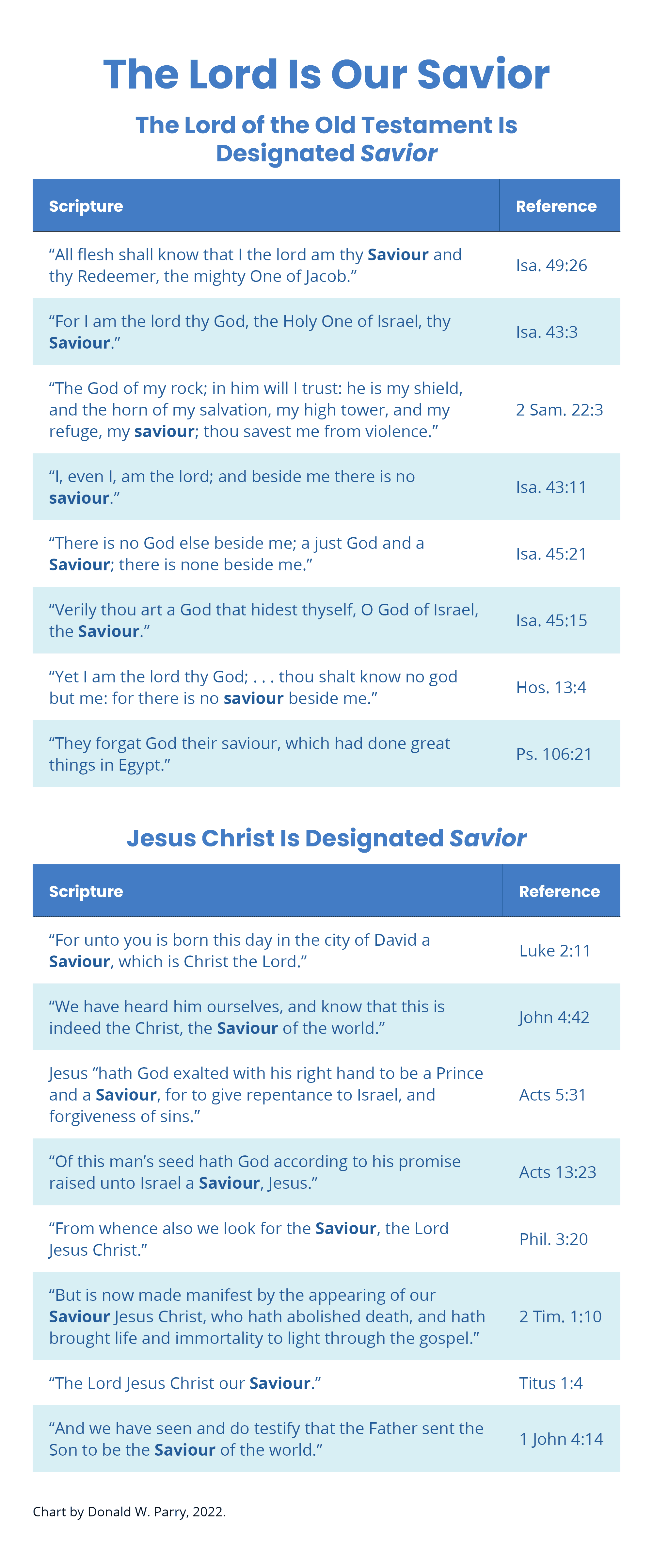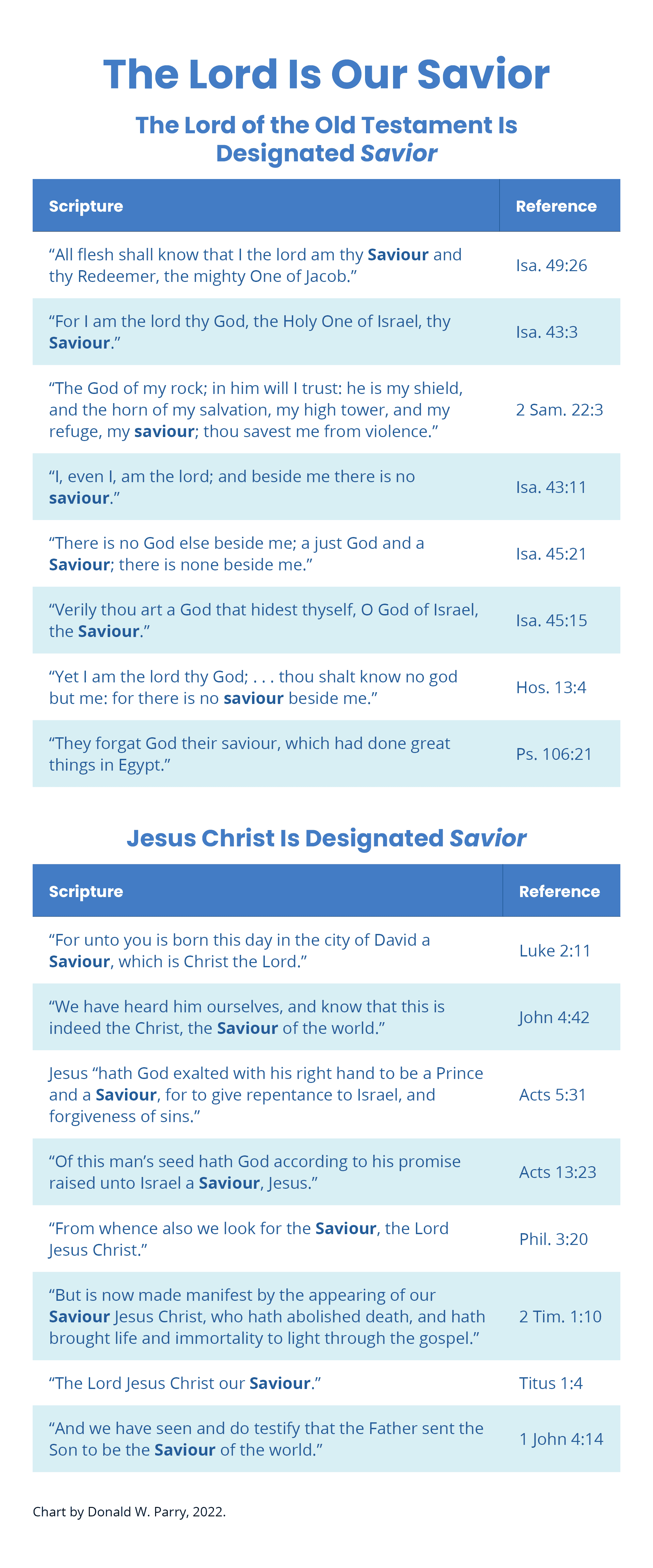
Share
The Lord Is Our Savior

Title
The Lord Is Our Savior
Publication Type
Chart
Year of Publication
2022
Authors
Parry, Donald W. (Primary)
Share
Abstract
Jehovah (=Lord) of the Old Testament is designated Savior, and Jesus Christ of the New Testament is also named Savior; that is because Jesus Christ is none other than Jehovah, the God of the Old Testament!
Several Old Testament verses reveal, in the plainest language possible, that the lord is our Savior. For example, Isaiah 49:26 states, “All flesh shall know that I the lord am thy Saviour,”[1] and Isaiah 45:15 reads, “O God of Israel, the Saviour.” Moreover, several New Testament passages testify that Jesus Christ is our Savior: “a Saviour, which is Christ the Lord” (Luke 2:11), “our Saviour Jesus Christ” (2 Tim. 1:10; Titus 2:13), “the Lord Jesus Christ our Saviour” (Titus 1:4), “our Saviour Jesus Christ” (Titus 2:13; 2 Pet. 1:1), “the Father sent the Son to be the Saviour of the world” (1 John 4:14), and so forth. These statements, written by New Testament Apostles and writers, are testimonies that Jesus Christ is our Savior.
The terms Savior, salvation, and save are interrelated: Savior and salvation are derived from the Latin salvare, meaning “to save.”
The Bible uses the word save to mean to protect persons from danger. This meaning is used in the Bible to refer to Christ’s disciples who feared that they were going to drown during a great storm while out to sea in a ship. They woke Jesus, “saying, Lord, save us, we perish” (Matt. 8:25; emphasis added). The scriptures include numerous other examples in which the verb save refers to temporal safety (e.g., Matt. 14:30; Mark 3:4; Acts 27:31, 43).
The scriptures also use the verb save in various spiritual ways: through the power of the Resurrection, Jesus saves us from physical death; He also saves us from spiritual death, wherein we are separated from God’s presence because of our sins. Matthew wrote regarding Mary, “And she shall bring forth a son, and thou shalt call his name Jesus: for he shall save his people from their sins” (Matt. 1:21; emphasis added). In view of the fact that Jesus saves us from sin and death, He is called our Savior. The lord Himself revealed to Isaiah, “I am . . . the Holy One of Israel, thy Savior” (Isa. 43:3). Jesus Christ alone is the Savior; no one else has the authority or the entitlement to possess that responsibility. “Beside me there is no Savior” (Isa. 43:11), the lord revealed.
In addition to Savior, salvation, and save, the prophets used different words to describe the Atonement, including redemption, reconciliation, mediation, salvation, propitiation, ransom, atonement, and intercession. Some of these words are related to other words that are derived from the same roots. For instance, redemption is linked to redeem and Redeemer. Each of the Atonement-related words evokes a particular understanding, feeling, or meaning to those who read the prophets’ words. Each casts a beautiful light on Jesus Christ and His extraordinary and magnificent Atonement.

Subject Keywords
Donald W. Parry
Jesus Christ
Old Testament
Bible
Savior
Bibliographic Citation
Terms of use
Items in the BMC Archive are made publicly available for non-commercial, private use. Inclusion within the BMC Archive does not imply endorsement. Items do not represent the official views of The Church of Jesus Christ of Latter-day Saints or of Book of Mormon Central.